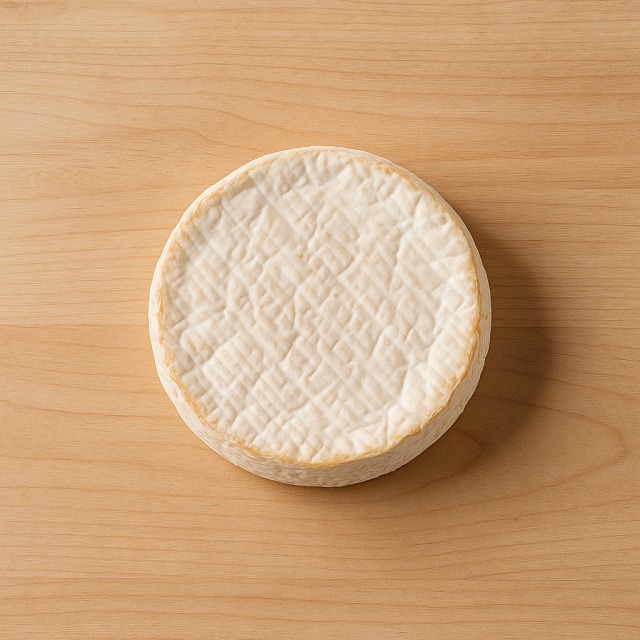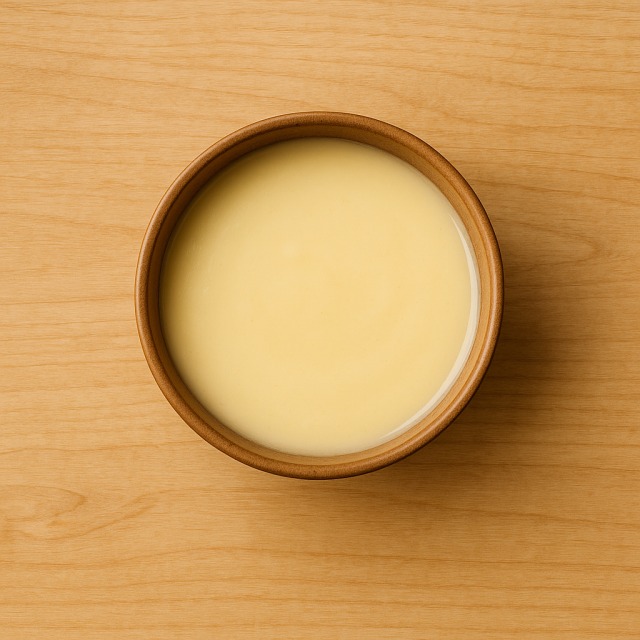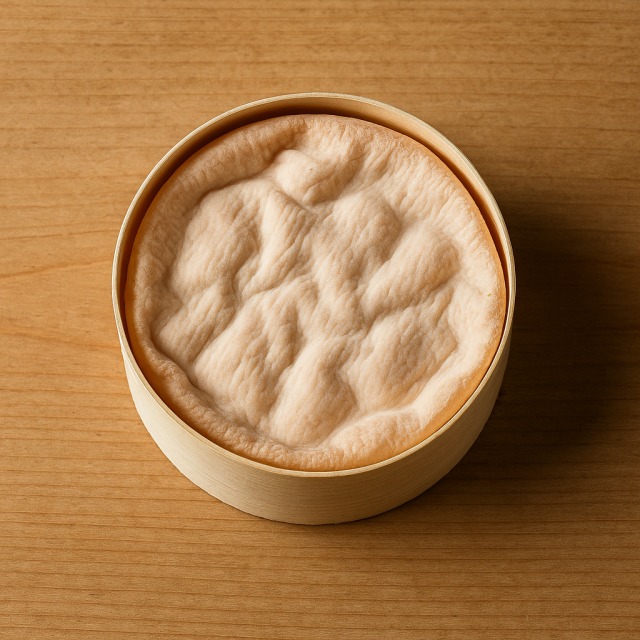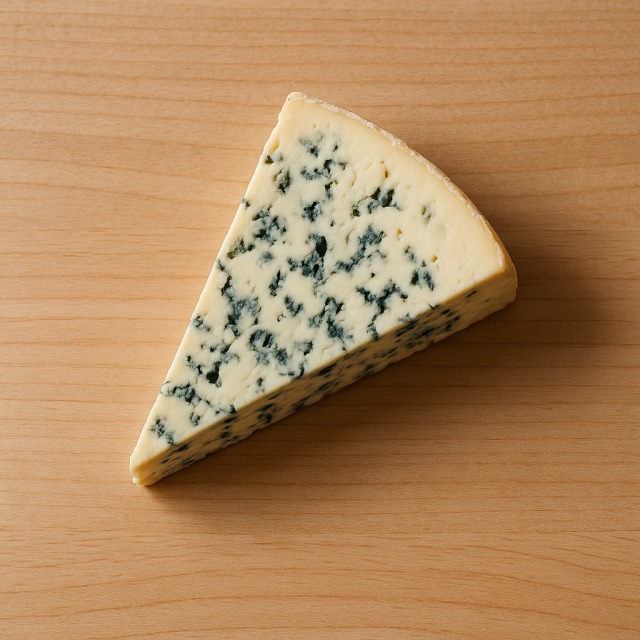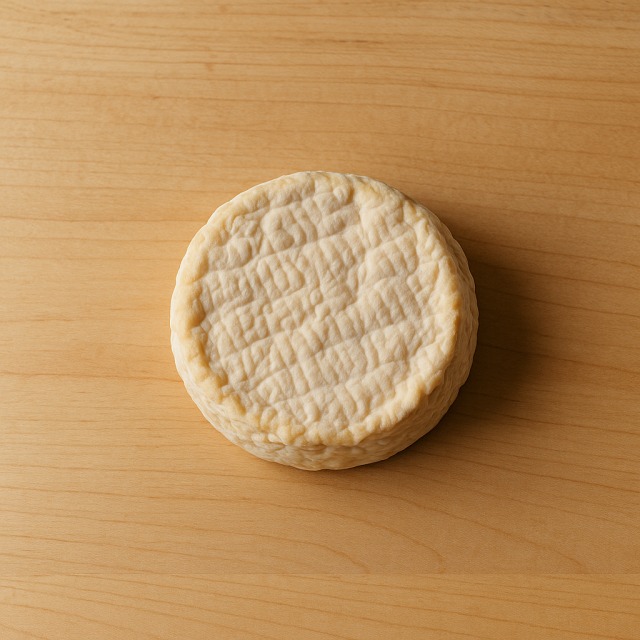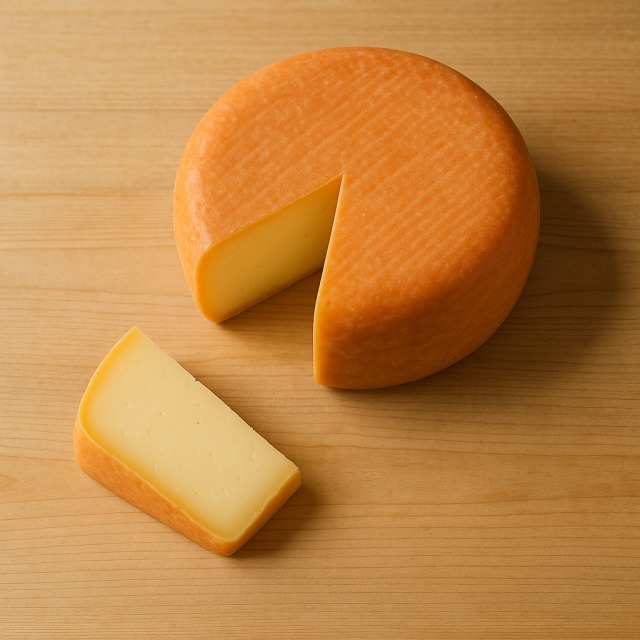Calorie Chart / Cheeses / Morbier
How Many Calories Are in Morbier?
Calculation of the nutritional value & Recommended Dietary Intake of morbier
For g and a calorie requirement of kcal
| Calories 139 kcal | Proteins 9.6 g | Lipids 11 g | Carbohydrates 0 g |
| 7% | 13% | 16% | 0% |
Health benefits of morbier
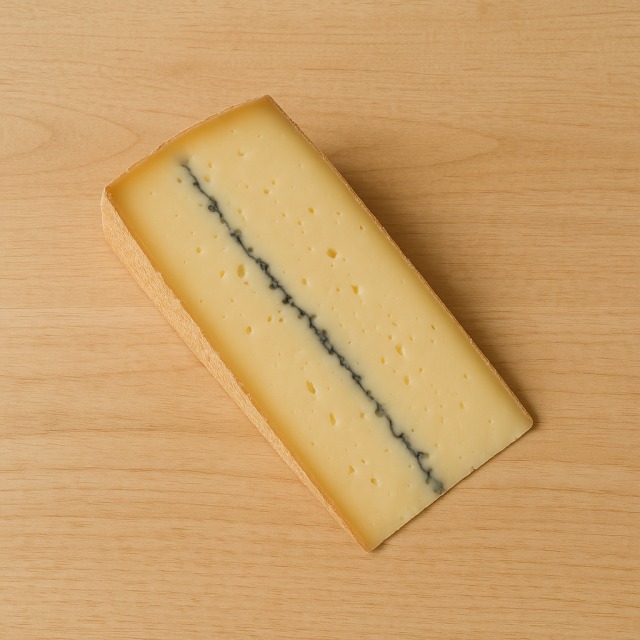
Morbier - 100g
Calories 348 kcal
Proteins 24 g
Lipids 28 g
Carbohydrates 0 g
Morbier is a semi-soft, washed-rind cheese from France's Jura Mountains, renowned for the fine line of vegetable ash running through its center. With around 348 calories per 100 g, it is considered a high-calorie food, mainly because of its 28 g of lipids. Nevertheless, it also delivers around 24 g of proteins, making it more satiating than many other calorie-dense products.
Nutritionally, Morbier supplies generous amounts of calcium (around 70% of the daily value in a 100 g portion), phosphorus, and zinc, all essential for bone and immune health. It also contains vitamin B12 and vitamin B2, important for energy metabolism, and small amounts of vitamin A. Because it is made with raw cow's milk, flavor-forming probiotic bacteria survive the aging process and may contribute to gut diversity, although this benefit remains supposed rather than scientifically proven.
The distinctive dark vein dates back to 19th-century farmers who protected the evening curd with ash before topping it with the morning curd—an ingenious way to limit waste during harsh Jura winters. Similar culinary heritage can be found in cheeses like Comté or Raclette, but Morbier's ash line makes it instantly recognizable and a talking point at any cheese board, all while reminding the calorie-conscious that portion size matters.
Tips for incorporating morbier into a balanced diet
Because Morbier is rich in flavor and calories, a small 30 g slice is often enough to perfume a dish. Melt it over steamed potato wedges and finish with a handful of raw arugula for a lighter take on tartiflette that keeps calories in check. The peppery greens balance the cheese's creaminess while adding fiber.
For a balanced lunch, assemble a whole-grain sandwich: lightly toast wholemeal bread, add thin slices of Morbier, crisp apple matchsticks, and a few walnuts. The fruit brings freshness without many calories, and the nuts add unsaturated fats that complement the cheese's saturated ones.
Fans of warm salads can grill slices of zucchini or eggplant, lay a shaving of Morbier on top so it gently melts, then toss with cherry tomatoes and a mustard vinaigrette. This recipe keeps overall calories moderate while showcasing the cheese's aroma. Morbier can also replace mozzarella in a homemade pizza; simply reduce the usual cheese quantity by half to limit calories yet keep the creamy texture.
Frequently Asked Questions
- How many calories are in Morbier?
- There are 348 kcal per 100 g.
- Is Morbier high in fat compared with other cheeses?
- Yes. With 28 g of lipids per 100 g, Morbier is towards the upper end of the cheese spectrum, so monitoring portion size helps control calories.
- Does Morbier provide a good amount of protein?
- Absolutely. Its 24 g of protein per 100 g makes Morbier a satiating choice despite the high calories.
- Can I include Morbier in a weight-loss diet?
- Yes, but use small portions (20–30 g) and combine with low-calorie foods like broccoli or lettuce to keep the meal's total calories balanced.
- Is Morbier suitable for people with lactose intolerance?
- Being a semi-soft cheese, Morbier still contains some lactose; mildly intolerant individuals may tolerate small servings, but those highly sensitive should opt for hard cheeses or lactose-free alternatives.
Similar foods
Information provided by Calorie Menu may contain inaccuracies or errors. It cannot, under any circumstances, substitute medical advice or medication.
